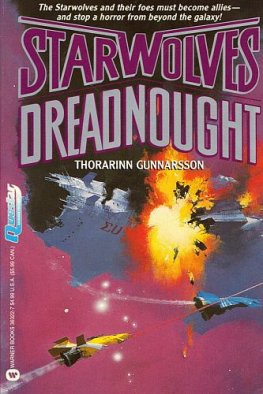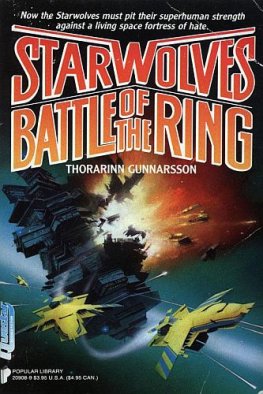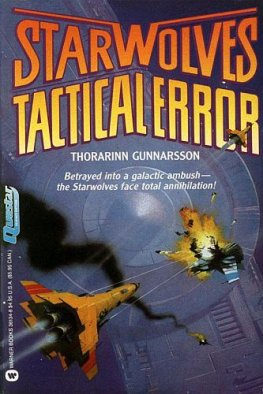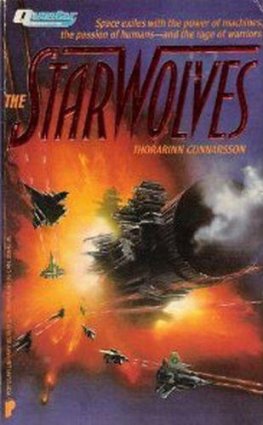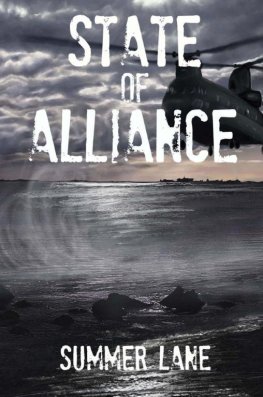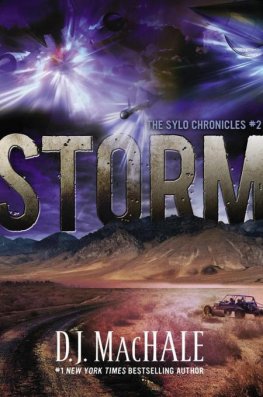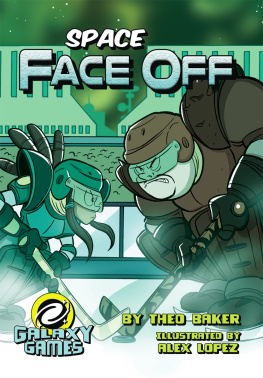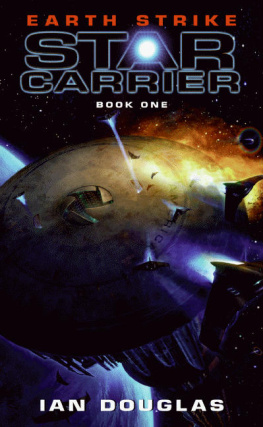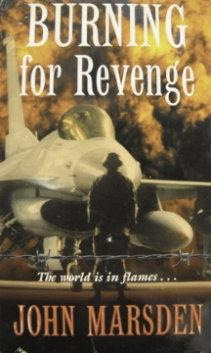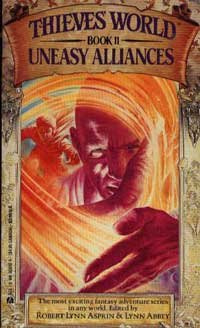Thorarinn Gunnarsson - Dreadnought
Here you can read online Thorarinn Gunnarsson - Dreadnought full text of the book (entire story) in english for free. Download pdf and epub, get meaning, cover and reviews about this ebook. year: 1993, genre: Science fiction. Description of the work, (preface) as well as reviews are available. Best literature library LitArk.com created for fans of good reading and offers a wide selection of genres:
Romance novel
Science fiction
Adventure
Detective
Science
History
Home and family
Prose
Art
Politics
Computer
Non-fiction
Religion
Business
Children
Humor
Choose a favorite category and find really read worthwhile books. Enjoy immersion in the world of imagination, feel the emotions of the characters or learn something new for yourself, make an fascinating discovery.
- Book:Dreadnought
- Author:
- Genre:
- Year:1993
- ISBN:0446363227
- Rating:5 / 5
- Favourites:Add to favourites
- Your mark:
- 100
- 1
- 2
- 3
- 4
- 5
Dreadnought: summary, description and annotation
We offer to read an annotation, description, summary or preface (depends on what the author of the book "Dreadnought" wrote himself). If you haven't found the necessary information about the book — write in the comments, we will try to find it.
Dreadnought — read online for free the complete book (whole text) full work
Below is the text of the book, divided by pages. System saving the place of the last page read, allows you to conveniently read the book "Dreadnought" online for free, without having to search again every time where you left off. Put a bookmark, and you can go to the page where you finished reading at any time.
Font size:
Interval:
Bookmark:
Thorarinn Gunnarsson. Dreadnought
Starwolves 4
Prologue
They were the Starwolves. Hunters of the Stars. Warriors of the Endless Night.
They were bred for war, designed to function at ease under the deadly conditions of high speeds and sharp, crushing turns demanded in spaceflight. No living being could compete with them in battle. Not even the most complex computer guidance system could out-fly them. Created to serve as simple machines of war, they would in time evolve into the greatest and most noble of races, most deadly of enemies but truest of friends, champions of justice but cold and merciless warriors.
But eighteen centuries before Velmeran, Commander of the legendary carrier Methryn, insisted that he and his people were not machines and brought the ancient war of the Starwolves to an end, matters were very different indeed. The Starwolves were smaller, weaker and less clever than they would become, never thinking to question the single purpose of existence which they had been designed to fulfill.
They fought their battles in blind faith, failing to consider the greater strategies that would have ended that unending war.
Then a greater menace came from beyond unknown stars, destroying all things for the sake of destruction alone, giving battle without any greater purpose than to seek out and ravage all civilized life. And so it was that the Starwolves were called upon to defend the very enemy they had been created to destroy. But how they would respond, and just how much their own will could influence the instincts that had been programmed into their very nature, were matters impossible to predict
1
The convoy began dropping out of starflight, each ship a minute behind the one before it. Mostly they were medium bulk freighters, small enough to be quick and agile but large enough to be useful, although every fifth ship was a powerful Union battleship or heavy carrier. Each ship coasted for a few minutes after emerging to carry itself clear of the area of emergence, before braking with forward engines just in time to join up with the main convoy, drifting deeper into the system that was its destination. Twenty-seven had already gone sub-light and eight more would join up with the group in the next few minutes. If all went well, they would all settle into orbit within six hours, making a less tempting target for the Starwolves.
Union Fleet Command had some odd and rather ineffectual notions about the true definition of subtlety. The transport of millions of tons of chemical explosive ordinance could have been done more quietly by moving a ship or two at a time; a convoy under military protection only called attention to itself, no matter how quietly and quickly it tried to move. And if the Starwolves discovered the convoy, three battleships and two carriers could hardly offer even the slightest protection.
A curious state of war had existed between the Starwolves and the Union for over thirty thousand years, sometimes in active and merciless hostility, and sometimes in a tense truce that might exist for centuries. The Starwolves were self-appointed protectors. As long as the Sectors and their vast trade monopolies dealt fairly and peacefully with the lesser colonies, the independents and the few aliens within the space they controlled, then the Starwolves were willing enough to keep the truce. But the Sector families and their monopolies existed for the sake of greed; they preferred to take what they did not own, destroy the competition offered by the independents, and the Starwolves were always swift to punish tyranny. No one knew what motivated the Starwolves, except perhaps some instinct for altruism that had been programmed into them.
Perhaps that was the whole point; the Starwolves were an artificial race, created for the purpose of fighting the Union. Although vaguely human in appearance, they had been bred by complex genetic engineering methods, for quickness, endurance and tremendous strength, to make them perfectly suited for the crushing accelerations of spaceflight. The Union could not begin to match the technology of their immense carriers and nimble black fighters. Or even if they had, the Union still possessed no pilot capable of flying against a Starwolf nor even of surviving the deadly conditions aboard such a ship. Indeed the Starwolves would have won their war long ago, except that the Union was able to resist them by size and numbers alone. The Starwolves were thought to have only eighteen ships, with perhaps ten packs of fighters aboard each. With its limitless resources, the Union could afford to lose a small fleet more easily than the Starwolves could lose a single fighter.
But that was never to suggest that the Union accepted such losses, not when its ultimate goal was to defeat the Starwolves either by slow, steady attrition or an overwhelming cascade of resources. There seemed to be some small hope in that scheme, for the Starwolves were inexplicably unwilling to be ruthless. They might prey upon shipping, or make occasional strikes at important military targets, but they would not take the war into the Union itself, and destroy its ability to make war by removing its means to renew its lost resources.
Therefore the loss of several million tons of explosives, or even the ships that carried it, was hardly a matter of great concern in the larger scheme of things. . except, of course, to the crews of those ships. If the Starwolves did find them, the escort of three battleships and two carriers would have been futile, even laughable. Starwolves seemed to have an uncanny way of knowing in advance things that the Union tried to keep secret. They were too clever to fool, too swift to evade and too powerful to fight.
Such thoughts had been very much on the mind of Captain Janus Tarrel every moment of the journey. Hers was the ultimate responsibility, not just as captain of her own battleship, the Carthaginian, but as executive commander of the entire convoy. The official position at that moment was that a state of moderate tension existed between the Union and the Starwolves, which was to say that certain greedy Sectors had been trying to expand at the expense of the colonies and the Starwolves had responded predictably. That response had so far taken the form of a general, unpredictable attack on military and company shipping, a tactic designed to defeat the Unions ability to take a hostile stance. The Starwolves would not hesitate to utterly destroy this convoy with its cargo of explosives destined to subdue unruly colonies.
All ships are down from starflight, the surveillance officer reported. The convoy will be firming up within five minutes. What surveillance contacts do you have? Captain Tarrel asked, knowing that she would have been told of anything new or unusual as a matter of normal procedure.
Three contacts running in system, all identified commercial ships on the established shipping lanes. No contacts at all within two point seven light hours.
Captain Tarrel found that less reassuring than she had wished. She would have felt better if she could rely upon having any warning, but the Starwolves had a habit of dropping out of starflight right on top of their prey. They possessed accurate achronic scanners that could see across whole light years without a time delay. Her own scanners had an increasing lag that made them worthless past a few light hours, and were almost blind to a ship still in starflight.
Time to destination? she asked.
Five hours, forty-seven minutes, the helm officer responded, channeling the navigational grid to the main viewscreen.
Chagin, the first officer, walked quietly over to join her at the central station where they could see the viewscreen clearly. Do you wish to increase our speed and arrive sooner?
Tarrel shook her head impatiently. This many large engines flaring in such tight formation would shout our presence to Starwolf scanners three sectors over. It would be better for us to just coast in.
Font size:
Interval:
Bookmark:
Similar books «Dreadnought»
Look at similar books to Dreadnought. We have selected literature similar in name and meaning in the hope of providing readers with more options to find new, interesting, not yet read works.
Discussion, reviews of the book Dreadnought and just readers' own opinions. Leave your comments, write what you think about the work, its meaning or the main characters. Specify what exactly you liked and what you didn't like, and why you think so.

